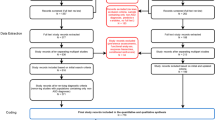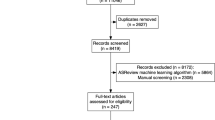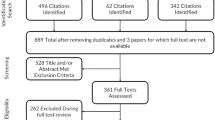Abstract
The Pediatric Quality of Life Inventory version 4.0 (PedsQLTM4.0) is an internationally recognized, generic, health‐related quality of life (HRQoL) questionnaire, but its proxy 2–4-year-old version has not been validated in France. This study proposes a psychometric validation of this tool for French children aged 2 to 4 years and 11 months. A total of 220 parents of typically developing children participated. Acceptability was explored. Internal consistency was tested using Cronbach’s alpha. Factor structure was tested using an exploratory structural equation modeling (ESEM). Risk of bias was assessed regarding gender and age effect on HRQoL using Student’s t test. Except for school functioning, compliance was good (< 2.9%). No floor effects were observed, but ceiling effects were found for all scores. The total score had good internal consistency (Cronbach’s α = .82). The Cronbach’s α of each subscale was between .53 and .71. Factor analysis rejected the original 4-factor structure and revealed an alternative 2-factor structure. The total score and emotional scale score did not appear to be sensitive to gender or child age.
Conclusions: The PedsQLTM4.0 generic HRQoL questionnaire presents good psychometric properties, regarding acceptability and reliability. For use among French children aged 2 to 4 years and 11 months, we recommend retaining the total score and the emotional scale score.
What is Known: • Health-related quality of life (HRQoL) is an important measure in pediatric health assessment. There exist few tools that measure HRQoL among French preschool children. • The Pediatric Quality of Life Inventory version 4.0 (PedsQLTM4.0) is a generic scale designed to assess HRQoL among children, adolescents, and young adults aged 2 to 25 years and widely disseminated internationally. | |
What is New: • The present study proposes a validation of the 2–4-year-old proxy PedsQLTM4.0 generic questionnaire in a sample of French children. • The tool has good psychometric properties implying that it could be used and diffused, under certain conditions, in a clinical and research context. |
Similar content being viewed by others
Availability of data and materials
All data generated or analyzed during this study are included in this published article. The datasets used for those published data are available from the corresponding author on request.
Abbreviations
- CFI:
-
Comparative fit index
- ESEM:
-
Exploratory structural equation modeling
- HRQoL:
-
Health‐related quality of life
- INSEE:
-
Institut national de la statistique et des études économiques
- PedsQLTM4.0:
-
Pediatric Quality of Life Inventory version 4.0
- RMSEA:
-
Root mean square error of approximation
- TLI:
-
Tucker–Lexis index
- WHO:
-
World Health Organization
References
Varni JW, Limbers CA (2009) The Pediatric Quality of Life Inventory: measuring pediatric health-related quality of life from the perspective of children and their parents. Pediatr Clin North Am 56:843–863
World Health Organization (1946) Constitution. WHO, Geneva
Schepers SA, van Oers HA, Maurice-Stam H, Huisman J, Verhaak CM, Grootenhuis MA, Haverman L (2017) Health related quality of life in Dutch infants, toddlers, and young children. Health Qual Life Outcomes. https://doi.org/10.1186/s12955-017-0654-4
Conijn JM, Smits N, Hartman EE (2020) Determining at what age children provide sound self-reports: an illustration of the validity-index approach. Assessment 27(7):1604–1618
Missotten P, Etienne AM, Dupuis G (2007) La qualité de vie infantile : état actuel des connaissances. Revue Francophone de Clinique Comportementale et Cognitive 12(4):14–27
Varni JW, Limbers C, Burwinkle T (2007) How young can children reliably and validly self-report their health-related quality of life?: An analysis of 8,591 children across age subgroups with the PedsQLTM 4.0 Generic Core Scales. Health Qual Life Outcomes 5(1):1–13
Bevans KB, Riley AW, Moon J, Forrest CB (2010) Conceptual and methodological advances in child-reported outcomes measurement. Expert Rev Pharmacoecon Outcomes Res 10(4):385–396
Kubba H, Swan IRC, Gatehouse S (2005) Measuring quality of life in preschool children with sore throats and otitis media using the TAPQOL questionnaire. Otolaryngology-Head and Neck Surgery 132:647–652
Manificat S, Dazord A, Langue J, Danjou G, Bauche P, Bovet F, Conway K (2000) Evaluation de la qualité de vie du nourrisson et du très jeune enfant : validation d’un questionnaire. Etude multicentrique européenne Archives de pédiatrie 7:605–614
Tessier S, Vuillemin A, Lemelle JL, Briançon S (2009) Propriétés psychométriques du questionnaire générique français « Pediatric Quality of Life Inventory Version 4.0» (PedsQLTM 4.0). Revue européenne de psychologie appliquée 59:291–300
Varni JW, Seid M, Kurtin PS (2001) PedsQL 4.0: reliability and validity of the Pediatric Quality of Life Inventory version 4.0 generic core scales in healthy and patient populations. Med Care 39:800–812
Amedro P, Huguet H, Macioce V, Dorka R, Auer A, Guillaumont S, Picot MC (2021) Psychometric validation of the French self and proxy versions of the PedsQL 4.0 generic health-related quality of life questionnaire for 8–12 year-old children. Health Qual Life Outcomes. https://doi.org/10.1186/s12955-021-01714-y
Campbell N, Ali F, Finlay AY, Salek SS (2015) Equivalence of electronic and paper-based patient-reported outcome measures. Qual Life Res 24(8):1949–1961
Asparouhov T, Muthén B (2009) Exploratory structural equation modeling. Struct Equ Model 16:397–438
Marsh HW, Morin AJS, Parker PD, Kaur G (2014) Exploratory structural equation modeling: integration of the best features of exploratory and confirmatory factor analysis. Annu Rev Clin Psychol 10:85–110
Booth T, Hughes DJ (2014) Exploratory structural equation modeling of personality data. Assessment 21(3):260–271
Tabachnick BG, Fidell LS (2013) Using multivariate statistics, 6th edn. Pearson Education, Boston, Massachusetts
Ji Y, Chen S, Li K, Xiao N, Yang X, Zheng S, Xiao X (2011) Measuring health-related quality of life in children with cancer living in mainland China: feasibility, reliability and validity of the Chinese mandarin version of PedsQL 4.0 Generic Core Scales and 3.0 Cancer Module. Health Qual Life Outcomes. https://doi.org/10.1186/1477-7525-9-103
Reinfjell T, Diseth TH, Veenstra M, Vikan A (2006) Measuring health-related quality of life in young adolescents: reliability and validity in the Norwegian version of the Pediatric Quality of Life Inventory 4.0 (PedsQL) generic core scales. Health Qual Life Outcomes. https://doi.org/10.1186/1477-7525-4-61
Marsh HW, Lüdtke O, Muthén B, Asparouhov T, Morin AJS, Trautwein U, Nagengast B (2010) A new look at the big five factor structure through exploratory structural equation modeling. Psychol Assess 22(3):471–491
Roizen M, Rodriguez S, Bauer G, Medin G, Bevilacqua S, Varni JW, Dussel V (2008) Initial validation of the Argentinean Spanish version of the PedsQL 4.0 generic core scales in children and adolescents with chronic diseases: acceptability and comprehensibility in low-income settings. Health Qual Life Outcomes. https://doi.org/10.1186/1477-7525-6-59
Chan LFP, Chow SMK, Lo SK (2005) Preliminary validation of the Chinese version of the Pediatric Quality of Life Inventory. Int J Rehabil Res 28(3):219–227
Uneri OS, Agaoglu B, Coskun A, Memik NC (2008) Validity and reliability of Pediatric Quality of Life Inventory for 2- to 4-year-old and 5- to 7-year-old Turkish children. Qual Life Res 26:307–315
Wu RC, Thorpe K, Math M, Ross H, Micevski V, Marquez C, Straus SE (2009) Comparing administration of questionnaires via the Internet to pen-and-paper in patients with heart failure: randomised controlled trial. J Med Int Res 11(1)
Ravens-Sieberer U, Kaman A, Erhart M, Devine J, Schlack R, Otto C (2021) Impact of the COVID-19 pandemic on quality of life and mental health in children and adolescents in Germany. Eur Child Adolesc Psychiatry. https://doi.org/10.1007/s00787-021-01726-5
Acknowledgements
The authors would like to thank all the study participants.
Author information
Authors and Affiliations
Contributions
JL was the principal investigator of the study, developed the research protocol, recruited participants, collected data, participated in data analysis, wrote the first draft, and proofread the manuscript. ED analyzed the data and proofread the manuscript. ND translated and proofread the manuscript; she is a bilingual native English speaker. LM proofread the manuscript; he is the co-supervisor of JL’s doctoral thesis. EC participated in developing the research protocol and data analysis and proofread the manuscript; she is the supervisor of JL’s doctoral thesis.
Corresponding author
Ethics declarations
Ethical approval and consent to participate
This study was performed in line with the principles of the Declaration of Helsinki. Approval was granted by the Comité d’Ethique pour les Recherches Comportementales et En Santé (CERCES) of the Université Paris Descartes (2018/n°2018–27). All participants signed an informed consent prior to participating in the study.
Competing interests
The authors declare no competing interests.
Additional information
Communicated by Peter de Winter.
Publisher's Note
Springer Nature remains neutral with regard to jurisdictional claims in published maps and institutional affiliations.
Rights and permissions
Springer Nature or its licensor (e.g. a society or other partner) holds exclusive rights to this article under a publishing agreement with the author(s) or other rightsholder(s); author self-archiving of the accepted manuscript version of this article is solely governed by the terms of such publishing agreement and applicable law.
About this article
Cite this article
Lichtlé, J., Devouche, E., Downes, N. et al. Psychometric validation of the French version of the PedsQLTM4.0 generic health-related quality of life questionnaire for 2–4-year-old children. Eur J Pediatr 182, 1213–1219 (2023). https://doi.org/10.1007/s00431-022-04796-y
Received:
Revised:
Accepted:
Published:
Issue Date:
DOI: https://doi.org/10.1007/s00431-022-04796-y




